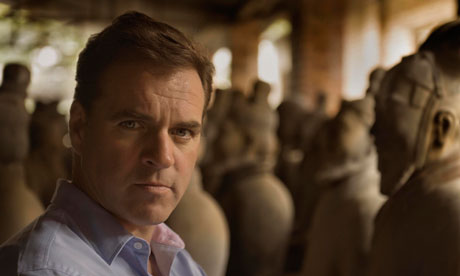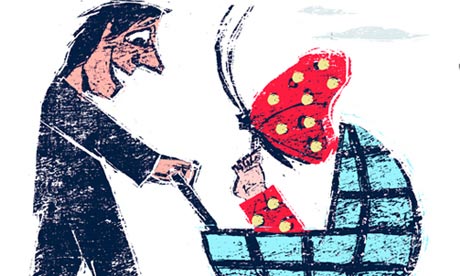By Tom Chivers in The Telegraph
'Time is an illusion. Lunchtime doubly so,” said Ford Prefect in Douglas Adams’s The Hitchhiker’s Guide to the Galaxy. For the past century, mainstream physics has agreed with him. To most of us, it seems obvious that the world is moving steadily forward through time, from a known past, through an active present, into a mysterious future. But, as Einstein said, “physicists believe the separation between past, present, and future is only an illusion, although a convincing one”.
“Mainstream physics basically eliminates time as a fundamental aspect of nature,” explains Prof Lee Smolin, a physicist at the Perimeter Institute for Theoretical Physics, in Ontario, Canada. “It does that in various ways, but the most common is the so-called 'block universe’ picture, which is derived from general relativity.”
Under this system, what is actually real is not our passage through time, but the whole of reality at once. “Imagine taking a movie of your life,” says Prof Smolin, “and laying out the frames on a table, and saying: that is your life. There is no now, there is no change.”
He thinks that it is high time – so to speak – this view was overturned. In his new book Time Reborn, he makes the case that time is a fundamental reality of the universe, and that without it, too many of the big questions of physics are left unanswerable.
The question of what time is, and whether it is real or illusory, is an ancient one. Even before Plato, Greek philosophers were debating whether, as Heraclitus said, you cannot step in the same river twice, that all is flux and change, or whether Parmenides was right and that change is an illusion, that the universe simply exists as an unchanging lump.
The first person to address the issue in depth, according to Dr Julian Barbour, author of The End of Time, was St Augustine. He was baffled by it, and said as much. “What then is time?” Augustine wrote. “If no one asks of me, I know; if I wish to explain to him who asks, I know not.” Still, he did make an attempt to explain it, coming to the surprisingly modern conclusion that there could not have been time before the world, because there would have been no change, and without change, time is meaningless.
Sir Isaac Newton, a thousand years later, disagreed. He held the common-sense view – instinctively shared by the rest of us – that time is absolute, marching on regardless of the doings of the stuff of the universe. It was Einstein who showed that it was no such thing. According to his theories of relativity, time and space are part of an interwoven fabric: the presence of matter changes both, stretching the fabric like a weight on a sheet.
His theories are counterintuitive – arguing that someone who is travelling ages slower than someone who is standing still, and that time goes faster the further we get from the surface of the Earth – but at least, in his universe, there is such a thing as time.
“Einstein, in a way, makes time something real – with the idea of space-time, he makes it as real as space,” says Dr Barbour. But there is a fundamental difference, which leads us to one of the great problems with our concept of time: “We get the impression that we are always moving through time, when we can perfectly happily sit still and have no impression that we are moving through space. That’s a very big mystery, because the laws of physics work exactly the same way whether you run them forwards or backwards.”
Clearly, that is not how we perceive the world. We see babies be born, grow old and die; water flowing downhill; and wood burning to ash. “If you drop an egg on the floor, it breaks, and there is no way you can put that egg back together again,” says Dr Barbour.
This is due to a property called entropy, or disorder. The second law of thermodynamics dictates that the universe will move from ordered, low-entropy states to disordered, high-entropy states: ice will melt and coffee will cool, until everything is the same temperature, and everything is mixed together in an undifferentiated mass. “According to the fundamental laws of physics as we know them, it shouldn’t make any difference which way you look at them. And yet it is clearly the case that entropy increases,” Dr Barbour says.
That leaves an awful lot of questions unanswered – which is where Prof Smolin’s ideas come in. “The second law dictates that any system in disequilibrium should come quickly to equilibrium,” he points out. “But our universe, even though it’s more than 13 billion years old, is very far from equilibrium.”
This is due to particular facts about the laws of physics – such as the strength of gravity, or the precise set of particles we observe – and the very specific way that the universe began. But Prof Smolin points out that we still do not know why those laws are as they are, or why the universe should have started in its particular way: “There seems to be no simple principle that picks out the standard model of particle physics from a vast number of equally likely possibilities.” Uncountable billions of other universes could have existed in which there would be no stars, no planets, and no us.
Prof Smolin’s point is that, for modern physics, in which time is treated as an illusion, this question is unanswerable. “The initial conditions and laws, in the block universe model, are just part of the universe. It would be like asking a computer to explain the program it’s running.” But if we treat the laws as things that could have been different had history gone differently, or that can change with time, “then time has to exist prior to those laws, and then it has to be real in a way that the block universe doesn’t allow”.
There is a risk with much of theoretical physics that it strays into a realm of philosophy, away from the science of experiment and reality. Prof Smolin insists that this is not the case: his idea of “real time” includes hypotheses that make testable predictions. One such experiment might be to use quantum computers, which, in theory, will be able to detect the evolution of physical laws. Dr Barbour (whose book tends to support the time-is-an-illusion school of thought), says that observations of astronomical phenomena called gamma-ray bursts might also show violations of Einstein’s laws at the universe’s smallest scale – although so far, he says, they have proved remarkably robust.
If Prof Smolin is right, he believes that it will have implications far beyond academic physics. “A lot of our thinking about many things, from the nature of being human to political and environmental problems, are poisoned by the belief that the future is already determined and that we can’t find truly novel solutions,” he says. “For example, in economics, the insistence that the laws are formalised in a timeless mathematical setting, like Newtonian physics, leads to some incorrect ideas, which helped contribute to the economic disaster of 2008.” A model of the world in which “the future is open, and the universe can discover novel structures, novel ideas, creates a very different idea of our possibilities” – and could lead to some very different thinking.
Whether he’s right or not, only time itself will tell. Certainly, physics has done away with the concept of time for so long that simply saying that it is real feels almost revolutionary.







